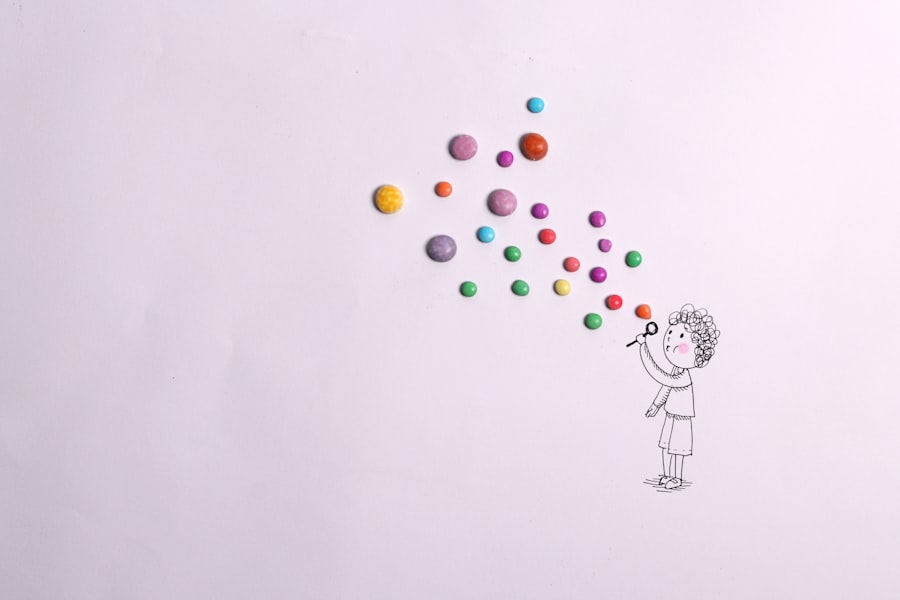Impulsivity is a multifaceted behavior characterized by a tendency to act on whims without fully considering the consequences. You may find yourself making snap decisions, whether it’s buying an expensive item you don’t need or saying something hurtful in the heat of the moment. This behavior can manifest in various forms, from minor everyday choices to significant life-altering decisions.
Impulsivity often arises from a desire for immediate gratification, leading you to prioritize short-term rewards over long-term benefits. Understanding impulsivity requires recognizing its various dimensions. It can be seen as a spectrum, where some individuals may exhibit mild impulsive tendencies while others may struggle with severe impulsivity that disrupts their daily lives.
This behavior is not merely a personality trait; it can be influenced by a range of factors, including biological, psychological, and environmental elements. By exploring the nature of impulsivity, you can begin to understand how it affects your life and the lives of those around you.
Key Takeaways
- Impulsivity is the tendency to act without thinking, often resulting in risky or harmful behaviors.
- The psychology behind impulsivity involves a combination of genetic, environmental, and neurological factors.
- Impulsivity can manifest differently in different age groups, with children, adolescents, and adults exhibiting varying levels of impulsivity.
- Impulsivity can have a significant impact on decision making, leading to poor choices and negative consequences.
- Impulsivity is linked to various mental health disorders, such as ADHD, bipolar disorder, and borderline personality disorder.
The psychology behind impulsivity
The psychology of impulsivity delves into the cognitive processes that drive your spontaneous actions. At its core, impulsivity often stems from an imbalance between the brain’s reward system and its self-control mechanisms. When you encounter a tempting situation, your brain’s reward centers may activate more strongly than the areas responsible for evaluating risks and consequences.
This imbalance can lead to hasty decisions that you might later regret. Moreover, impulsivity is closely linked to emotional regulation. When you experience heightened emotions—be it excitement, anger, or frustration—your ability to think rationally may diminish.
In such moments, you might act impulsively as a way to cope with overwhelming feelings. Understanding this psychological framework can help you recognize when your emotions are driving your decisions and encourage you to pause and reflect before acting.
Impulsivity in different age groups

Impulsivity manifests differently across various age groups, influenced by developmental stages and life experiences. In children and adolescents, impulsivity is often a natural part of growth. Young people are still developing their self-control and decision-making skills, which can lead to impulsive behaviors such as acting out in class or making reckless choices with friends.
As you navigate through these formative years, it’s essential to learn from your experiences and gradually develop better impulse control. In contrast, adults may experience impulsivity in more complex ways. While some may continue to struggle with impulsive behaviors, others might channel their impulses into creative or entrepreneurial endeavors.
However, adult impulsivity can also lead to significant challenges, such as financial instability or relationship issues.
Impulsivity and its impact on decision making
| Metrics | Findings |
|---|---|
| Impulsivity Level | High |
| Decision Making Speed | Fast |
| Risk Taking Behavior | High |
| Regret after Decision | More likely |
Impulsivity significantly influences your decision-making processes, often leading to choices that lack thorough consideration. When you act on impulse, you may overlook critical information or fail to weigh the potential outcomes of your actions. This can result in decisions that are not aligned with your long-term goals or values.
For instance, you might impulsively quit a job without having another lined up, only to face financial difficulties later. Moreover, impulsive decision-making can create a cycle of regret and anxiety. After acting on impulse, you may find yourself second-guessing your choices and feeling remorseful about the consequences.
This emotional turmoil can further exacerbate impulsive tendencies, as you might seek immediate relief through further impulsive actions. By recognizing this pattern, you can work towards making more deliberate choices that align with your aspirations and well-being.
Impulsivity and mental health
The relationship between impulsivity and mental health is complex and multifaceted. For many individuals, high levels of impulsivity are associated with various mental health disorders, including attention-deficit/hyperactivity disorder (ADHD), borderline personality disorder (BPD), and substance use disorders. If you struggle with impulsivity, it may be beneficial to explore whether underlying mental health issues contribute to your behavior.
Additionally, impulsivity can exacerbate existing mental health challenges. For instance, if you’re dealing with anxiety or depression, acting on impulse may provide temporary relief but ultimately lead to negative consequences that worsen your mental state. Understanding this connection can empower you to seek appropriate support and develop healthier coping strategies that address both impulsivity and mental health.
Impulsivity and addiction

Impulsivity plays a significant role in the development and maintenance of addictive behaviors. When you engage in substance use or other addictive activities, the immediate gratification they provide can reinforce impulsive tendencies. The brain’s reward system becomes conditioned to seek out these pleasurable experiences, making it increasingly difficult for you to resist temptation in the future.
Moreover, individuals with high levels of impulsivity may be more susceptible to experimenting with drugs or engaging in risky behaviors that lead to addiction. This cycle of impulsivity and addiction can create a challenging dynamic where each reinforces the other. Recognizing this relationship is crucial for those seeking recovery, as addressing impulsive behaviors can be an essential step toward breaking free from addiction.
Impulsivity and relationships
Impulsivity can have profound effects on your relationships with others. When you act on impulse without considering how your actions might impact those around you, misunderstandings and conflicts can arise. For example, you might blurt out something hurtful during an argument or make spontaneous plans that leave your partner feeling neglected or unimportant.
Furthermore, impulsive behaviors can erode trust in relationships over time. If your loved ones frequently experience the fallout from your impulsive actions, they may become hesitant to rely on you or share their feelings openly. Building healthy relationships requires awareness of how your impulses affect others and a commitment to improving communication and emotional regulation.
Managing impulsivity
Managing impulsivity involves developing strategies that promote self-awareness and self-control. One effective approach is practicing mindfulness techniques that encourage you to pause before reacting. By taking a moment to breathe deeply and assess the situation, you can create space for thoughtful decision-making rather than succumbing to immediate urges.
Additionally, setting clear goals for yourself can help channel your energy in more productive directions. When you have specific objectives in mind, you’re less likely to act impulsively in ways that detract from those goals. Establishing routines and structures in your daily life can also provide a framework that supports better impulse control.
Impulsivity in the workplace
In the workplace, impulsivity can manifest in various ways that impact both individual performance and team dynamics. You might find yourself making hasty decisions without consulting colleagues or jumping into projects without adequate planning. Such behaviors can lead to mistakes that affect not only your work but also the productivity of your team.
Moreover, impulsive communication—such as sending off an email without proofreading or reacting emotionally during meetings—can create misunderstandings and tension among coworkers. To foster a more collaborative work environment, it’s essential to cultivate self-awareness regarding your impulses and develop strategies for thoughtful communication and decision-making.
Impulsivity and risk-taking behavior
Impulsivity is often closely linked to risk-taking behavior, where individuals engage in activities that carry potential dangers or negative consequences without fully considering the risks involved. You might find yourself participating in extreme sports or making financial investments without conducting thorough research simply because the thrill of the moment feels irresistible. While some level of risk-taking can be beneficial—such as pursuing new opportunities or stepping outside your comfort zone—excessive impulsivity can lead to harmful outcomes.
Striking a balance between embracing new experiences and exercising caution is crucial for maintaining safety and well-being.
Seeking help for impulsivity
If you find that impulsivity significantly impacts your life or relationships, seeking help can be a vital step toward improvement. Mental health professionals can provide valuable insights into the underlying causes of your impulsive behavior and offer tailored strategies for managing it effectively. Therapy options such as cognitive-behavioral therapy (CBT) have proven effective in helping individuals develop better impulse control.
Additionally, support groups can provide a sense of community and understanding as you navigate challenges related to impulsivity. Sharing experiences with others who face similar struggles can foster connection and motivate positive change in your life. Remember that seeking help is a sign of strength; taking proactive steps toward managing impulsivity can lead to greater fulfillment and healthier relationships in the long run.
Impulsivity is a multifaceted concept often explored in psychological studies due to its significant impact on behavior and decision-making. A related article that delves into the intricacies of impulsivity can be found on Unplugged Psych’s website. This article provides insights into the underlying mechanisms of impulsivity and its implications for mental health. For a deeper understanding, you can read more about it by visiting the following link: Unplugged Psych. This resource offers a comprehensive look at how impulsivity is assessed and managed within various psychological frameworks.
WATCH THIS! Is This Hidden ADHD Sign Quietly Wrecking Your Sleep and Draining Your Energy?
FAQs
What is impulsivity?
Impulsivity is a personality trait characterized by a tendency to act on impulse without considering the potential consequences of one’s actions.
What are the causes of impulsivity?
Impulsivity can be caused by a variety of factors, including genetic predisposition, neurological differences in the brain, environmental influences, and certain mental health conditions such as ADHD and substance abuse disorders.
What are the effects of impulsivity?
Impulsivity can lead to a range of negative consequences, including financial problems, relationship difficulties, legal issues, and physical harm. It can also contribute to mental health issues such as anxiety and depression.
How is impulsivity treated?
Treatment for impulsivity may involve therapy, medication, and lifestyle changes. Cognitive-behavioral therapy (CBT) and dialectical behavior therapy (DBT) are commonly used to help individuals learn to manage their impulsive tendencies.
Can impulsivity be controlled?
While impulsivity may be a natural personality trait for some individuals, it can be managed and controlled through various interventions, including therapy, medication, and developing coping strategies to improve decision-making skills.




